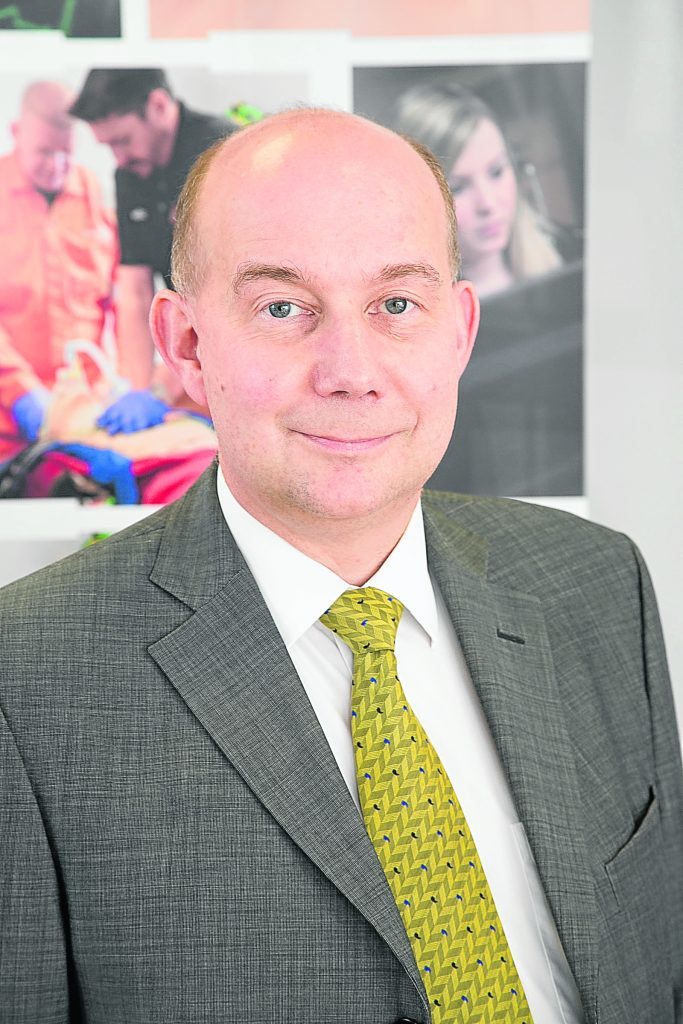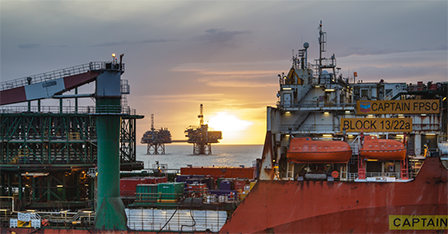
Progressive companies will focus on a preventative approach to managing the health risks of its workforce. This isn’t just about ‘doing the right thing’ but it impacts the bottom line.
A coherent and strong health risk management strategy is vitally important in complex and challenging environments such as offshore installations.
It is a little-known fact that there are only three statutory posts on offshore installations.
Alongside an installation manager and a radio operator, offshore medics are deemed to hold one of the most important roles on a rig or platform.
These medics are either experienced nurses registered with the Nursing and Midwifery Council (NMC), experienced paramedics registered with the Health and Care Professions Council (HCPC) or appropriately experienced ex-military medical technicians or assistants.
Whilst there are the more obvious conditions which require treating offshore such as coughs and colds, offshore medics are involved in a broad manner of scenarios which require qualified and experienced medical professionals. Broader issues can range from allergic reactions, to asthma and even heart attacks.
Before working offshore, as you’d expect, an offshore medic must undergo and successfully complete an offshore medic course delivered by an organisation approved by the Health and Safety Executive (HSE). They then need to requalify every three years to be able to continue working offshore.
Constant change
Why the constant need to requalify? Much of it is due to a rapidly changing environment around them.
At Iqarus, we compared our offshore medics activity in 1985 with 2015, and were interested to find that in 1985 a large part of their workload was dealing with trauma, from minor injuries to severe life-threatening events. Fast forward to 2015 and trauma is these days a rare occurrence, especially the severe events.
Most current clinical activity for offshore medics is primary care – minor illness and injury, interspersed with acute medical emergencies such as heart attacks, strokes or allergic reactions.
Multiskilled
The offshore medic has to be a GP, a counsellor, an acute medical specialist and still be able to manage severe trauma if required – this is whether they are on an installation with a large number of people on board (POB) or a small POB while also at times covering non-clinical tasks (heli-admin, a safety role). On some of our customer’s installations, the offshore medic also carries out industrial hygiene recording tasks such as noise dosimetry or water quality checks, fully supported and trained by experts in the Iqarus Industrial Hygiene division.
Maintaining competency across such a range of skills takes a certain type of individual and requires regular training, access to high quality clinical support and regular competency assessments to ensure that core skills are maintained.
Iqarus has long valued the importance of relevant training for offshore medics and we are constantly developing our HSE approved offshore medics course (OMC) to ensure our offshore medics have the skills they require for the role they undertake, for example our OMC now includes a formal Pre-hospital Trauma Life Support (PHTLS) qualification as well as specific training in musculoskeletal injuries and reinforcement of HSE, OSHA and IADC injury classifications. Our OMC is delivered at both our training units, in Dyce close to Aberdeen Airport and at our immersive training centre in Hereford.
Our Topside doctors (who provide 24/7 support to offshore medics from Aberdeen) all have significant experience in the offshore environment, some having worked offshore in UK waters and overseas. They will also conduct telephone support video linked consultations to support the offshore medics.
Some time ago, we introduced formal annual competency assessments for our offshore medics, and we are now using techniques such as objective structure clinical examination (OSCE) to supplement clinical interviews and ensure consistency.
As was well evidenced by clinical training for doctors, the more normal clinical examinations you carry out the easier it is to identify abnormalities when patients present with symptoms. This allows Iqarus to ensure the best possible clinical support for our customers and permits us to safely treat many conditions offshore without the requirement for non-emergency disembarkations.
Whilst the role of the offshore medic has changed significantly, the need to ensure the safety and wellbeing of employees offshore will always be high on the agenda of any business. Without a safe and productive workforce, there will be no industry.
For more information on our HSE approved training courses visit www.iqarus.com
